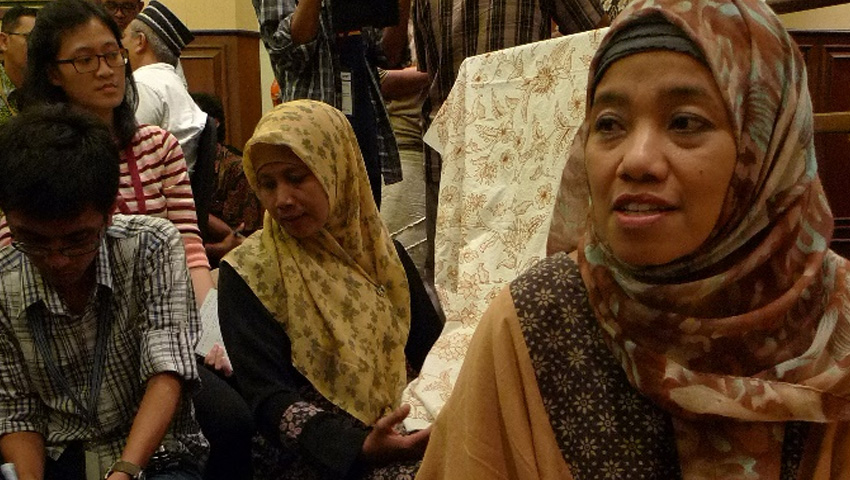For Adiani Viviana, changing from scientific to popular writing is like a driver changing lane during a race. “It is startling, and can be tiring for one person to keep changing lane back and forth,” said the program officer with local think-tank, ELSAM.
Adiani, along with 28 participants from 15 research institution/think tank partners of the Knowledge Sector Initiative (KSI), took part in an effective writing workshop in Yogyakarta on 29–30 April 2014. Addressing a shared concern among researchers, the workshop aimed to strengthen writing skills as part of building organisational capacity to promote research findings and recommendations to a wider audience. One way to do this is to learn and practice effective writing for articles, columns, news and/or policy briefs to make them accessible to the public and policy makers. Facilitated by the TEMPO Institute and resource persons with extensive research and media experience, the workshop focused on effective writing concepts and practical exercises.
One of the resource persons, Dr Yanuar Nugroho, Assistant Advisor to the Head of the Presidential Working Unit for the Supervision and Management of Development, elaborated the steps of good, effective writing: Plan, Draft, Revise, Edit, and Format. Yanuar also emphasized the importance of engaging different target audiences with different types of writing, be it an opinion piece, daily news, or an article in a reputable magazine, as well as maintaining one’s identity as researcher through academic writing.
The participants also learned about the importance of choosing an angle, structure, flow, and language style in their writing. “Writing is about organising ideas. Choosing an angle is therefore important in order to focus and explore these ideas in ways that are interesting and relevant to the readers. What is new, or important, or generates impact are three considerations for an angle,” said M. Taufiqurohman from TEMPO.
Practical exercises for participants on these aspects were well integrated into the sessions, which included a live interview session with batik makers from Bantul, Yogyakarta. Each participant later shared their draft article and discussed it in a group, with senior editors from TEMPO acting as reviewers.
“This mentoring session is very helpful since every researcher has their own writing style. As editors, we often face challenges in producing short, simple and meaningful articles,” said Faustinus Andrea, a managing editor at CSIS.
At the end of the workshop, each participant completed a follow-up action form specifying their institution’s commitment for the next three months. Most of them mentioned their intention to hold a knowledge sharing session in their own organisation on effective writing, and to start writing articles to be submitted to the Tempo blog, Indonesiana, or other national newspapers. This workshop was part of the KSI Communications Workshop Series that will run throughout 2014.






